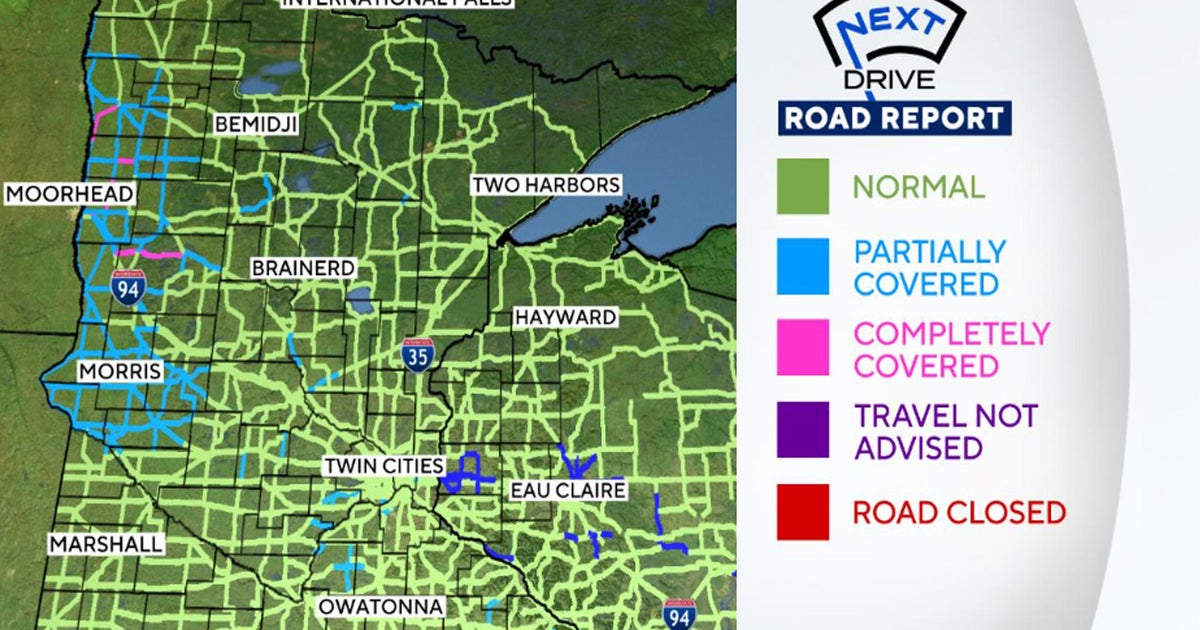A look inside how some hemp-derived THC edibles are made in Minnesota
CANNON FALLS, Minn. -- Inside an unassuming warehouse in Cannon Falls, it has all the makings of a candy factory. Except what they're mixing and molding and shaking with sugar has a special ingredient for adults only: THC oil extracted from hemp.
It's thick like glue and looks like honey, but what's inside can make a person feel high. Minnesota lawmakers last summer passed a bill legalized low-doses of the psychoactive compound in food and drink if it's hemp-derived, allowing manufacturers like Zach Rohr and his business Minny Grown to infuse 5mg of THC per serving in gummies, up to 50 mg per package.
The change, Rohr said, sent his business to another stratosphere.
"Our business has grown 1000%. It's almost like we're not even operating the same business anymore," he said. "So when that bill passed it wasn't a soft launch into THC but a full on, fast track, the rocket ship is going. Hop aboard."
Rohr grows six acres of hemp behind his manufacturing facility, which he started doing in 2019. The year before, Congress approved the 2018 Farm Bill and in it legalized hemp, removing it from a Schedule I drug classification if it had no more than .3% of THC on a dry weight basis.
Products with THC started popping up and Minnesota lawmakers sought to better regulate them when they passed last summer's bill. Since the legalization of low-dose edibles from hemp, Rohr has expanded his business, hiring 10 more employees.
Hemp and marijuana are like cousins, but what makes them different is marijuana has more THC in it.
"We have to grow it and dry it down to 7% moisture and once we have everything nicely ground and dried, we send it through our shredder which separates the bud, which has the oil from the stems," Rohr said describing the process.
The oil is extracted and mixed which sugar syrups and molded into gummies that Minny Grown does in-house and then packages for distribution to local retailers.
Legal marijuana for recreational use here could be on the horizon, too.
The DFL-led legislature has had multiple hearings on a bill that would allow Minnesotans 21 and older to grow, buy, sell and consume cannabis with higher THC limits. This legislation also makes some changes to the hemp edibles law; the bill's author envisions a future where both hemp and marijuana markets exist.
Products from both cannabis plants will be taxed and regulated the same way under that framework, said Rep. Zach Stephenson, DFL-Coon Rapids, who is sponsoring the legislation.
Rohr wants to cash in.
"It's more anxiety now that we see a real bill and it's actually going through," he said. "How do we best position our business and our customers to make this transition?"
Limitations in current THC law
But if that bill doesn't pass, additional rules for low-dose hemp edibles could still happen. Separate legislation spells out a state licensing structure, adds additional regulations and tacks on a gross receipts tax of 2.5%, similar to one on alcohol.
Additional clarity in the law is an ask of the Minnesota Board of Pharmacy, which is currently tasked with oversight. It filed a civil lawsuit against three companies in December for allegedly selling gummies with 20 times the legal limit of THC per serving.
"It is our hope that in the next legislative session that we pass much more comprehensive legislation surrounding these products," said Jill Phillips, the board's executive director, during a news conference announcing the legal action.
She and others in that office admitted in December that the board is limited in its ability to effectively enforce rules and regulations because there are no state licenses issued. Minnesotans can file complaints against manufacturers, distributors and retailers of hemp products.
Only through that process does the board know where products are being sold, Phillips said.
Legalizing these edibles came as a surprise to local elected officials, some of which have voted to put a temporary ban on sales in their communities. They are setting up local licensing and regulations of their own.
Under Stephenson's bill legalizing marijuana, oversight of both hemp and marijuana would fall under a new state Office of Cannabis Management.





